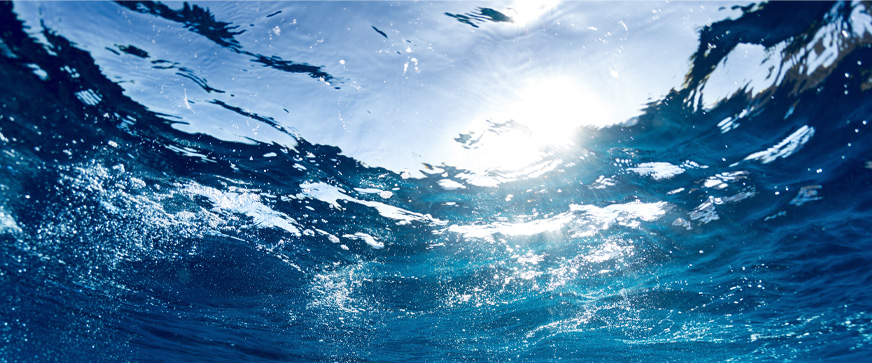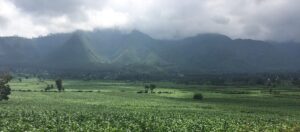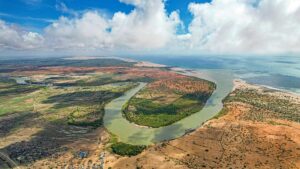A Blue New Deal can help us build back better
The Covid-19 crisis has exposed how degraded ecosystems and social inequality make the world dangerously susceptible not only to pandemics but also to many other risks. In this blog post SIWI’s Executive Director Torgny Holmgren proposes a Blue New Deal: a strong focus on water in global recovery efforts and six ways we can get started.

The coming weeks will be decisive for millions of people across the globe. How countries respond to the Covid-19 pandemic will impact the number of people who get infected, their chances of recovery, as well as our societies and economies at large. It will also determine the severity of other crises, such as the rise in hunger, poverty and unemployment expected to follow the pandemic.
With appropriate policy choices, governments can moderate the immediate effects and use the opportunity to redesign our economic and societal systems so that we are better prepared for future shocks and risks. Water has a fundamental role in that process and SIWI has long argued that water should be viewed as a common thread, connecting the sustainable development goals, to create long-term resilience.
Now is the time to make this shift. As countries and global institutions plan for the largest spending programmes in human history, a narrow window of opportunity has suddenly opened to steer the global economy in a more sustainable direction. Here are six ideas to get started:
1) Prioritize water and sanitation for all.
There is a reason everybody is talking about handwashing – it is the most efficient measure against the spread of the corona virus as well as many other deadly and harmful diseases. If we want to avoid future pandemics, it is unsustainable that 40 per cent of the global population and 35 per cent of healthcare facilities in low- and middle income countries lack provisions for proper handwashing. Equally dangerous is the fact 60 per cent of the global population does not have access to safely managed sanitation.
Few investments make so much sense at this point in time – especially since the World Health Organization estimates that investments in sanitation could pay for themselves four times over.
2) Protect human rights and vulnerable groups.
Emergency measures such as lockdowns have the most impact on the poor who may not be able to get food or access to clean water. However, there are encouraging examples of initiatives that, for example, guarantee that people will not get cut off from water services in the middle of a crisis, even if they are temporarily unable to pay their bills.
At SIWI we are following developments closely, providing support to decision-makers and water utilities around the world. Together with UNICEF we are currently mapping how countries are responding to the Covid-19 crisis when it comes to water and sanitation services. In a first phase we have looked at Latin America where there are good examples of efforts to cushion the impact on low-income households, but also often a troubling tendency to forget people who are living in shelters, refugee camps, detention centres or in the streets.
All over the world, governments now need to refocus and prioritize access to basic services for marginalized groups. According to the World Bank, the Covid-19 crisis could push between 40 and 60 million people into extreme poverty and the International Labor Organization warns that 195 million jobs may be lost.
3) Strengthen the protection of water resources.
To ensure that people can enjoy the human rights to water and sanitation ultimately hinges on the availability of water. By 2030 global demand for water is expected to outpace available supply by 40 per cent and half the global population could live in water scarce areas.
It is therefore misguided when some groups and governments argue for the, at least temporal, suspension of environmental regulations to speed up economic recovery. For the economy to function it needs access to clean water. A recent report from the World Economic Forum clearly demonstrates how the global economy relies on the natural world, including its water resources.
4) Build back better.
Given the enormous challenges ahead of us, and the weaknesses exposed by the current crisis, it would be reckless to just rebuild our economies and societies the way they were. The crisis offers us the opportunity to build something new. With rising global temperatures, rapid population growth and increasingly fragile ecosystems, we must prepare for a more dangerous and unpredictable future.
SIWI is actively collaborating on solutions for more water-smart cities, more water-effective forestry, innovative landscape management, protection of oceans and more resilient societies. The technology is often already there but needs to be scaled up. Nature-based solutions, digitalization and innovations in fields such as wastewater management offer new tools to create a more circular economy with greatly improved water efficiency and water quality.
At the same time, we must also strengthen the existing water infrastructure, which has been neglected in almost every country. This must be done now since the systems will otherwise not be able to cope with the increased pressure from growing populations and climate change.
5) Fight global hunger.
The World Food Programme warns that in the wake of the Covid-19 pandemic acute hunger could double worldwide. In Sub-Saharan Africa food security was in peril already before the coronavirus outbreak and is growing more serious by the day as more and more people lose their jobs. There are however alternatives. In a new report, SIWI explores how green water management could support smallholder farmers and help them become more productive. Increased investments in rainfed agriculture could create thousands of jobs in Sub-Saharan Africa and help the region become more food secure. Now is the time to implement the idea.
6) Cooperate with your neighbours.
In times of crisis there is always a risk of growing tensions and potential conflicts. A toxic rhetoric of radical nationalism and populism can make it challenging to advocate for collaboration with other countries. At the same time, the current crisis clearly demonstrates how dependent we are on each other. To improve human security and mitigate climate change impacts, we need more collaboration and sharing of water data. Cooperation over shared waters is necessary to increase resilience and reduce the risk of conflict. SIWI is working actively to facilitate such dialogues and raise capacity in the field of water diplomacy, including how to address new threats such as the rise in online disinformation campaigns.
Water can help the world unite around a shared agenda, a Blue New Deal if you like, since water issues tend to be less polarizing than for example climate change. The voice of water is urgently needed.







